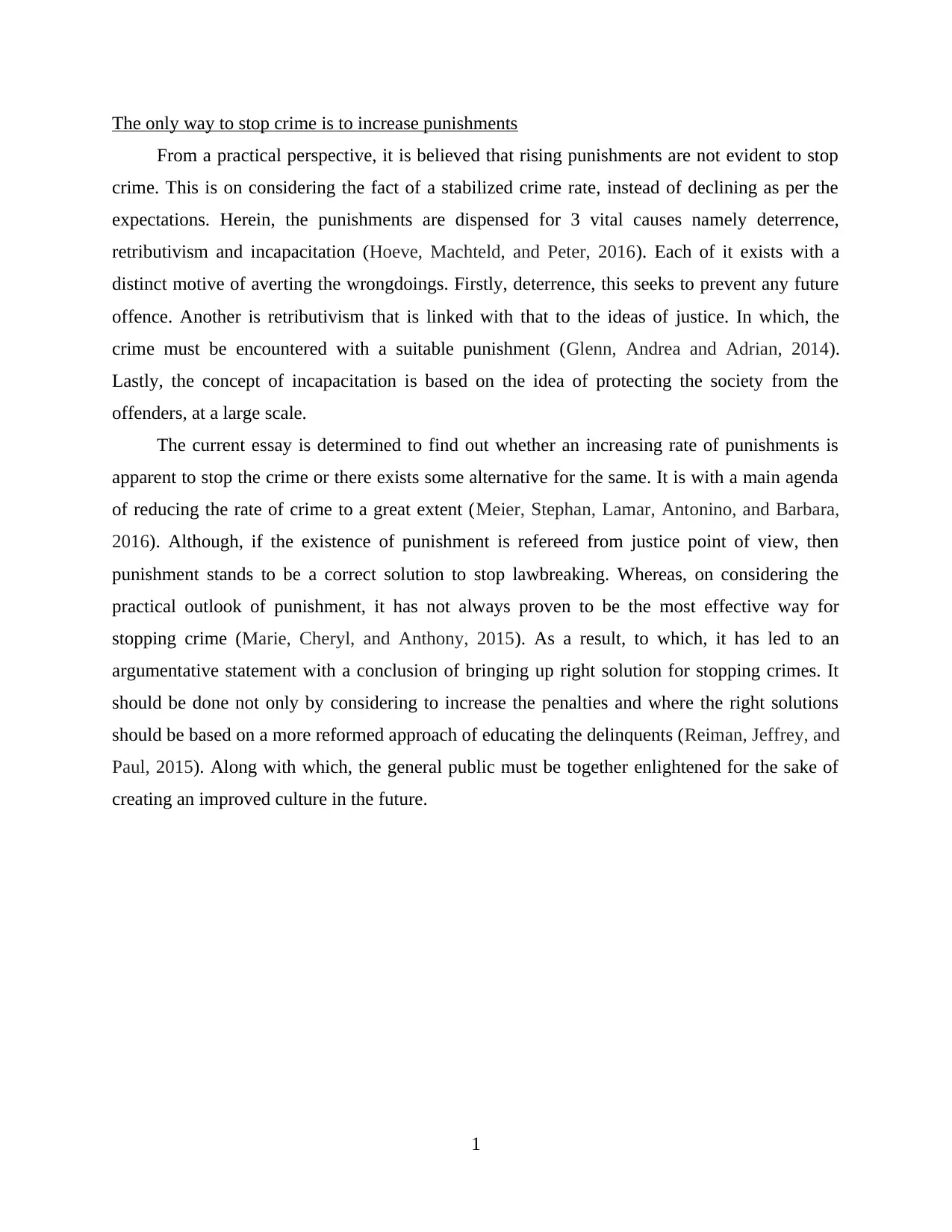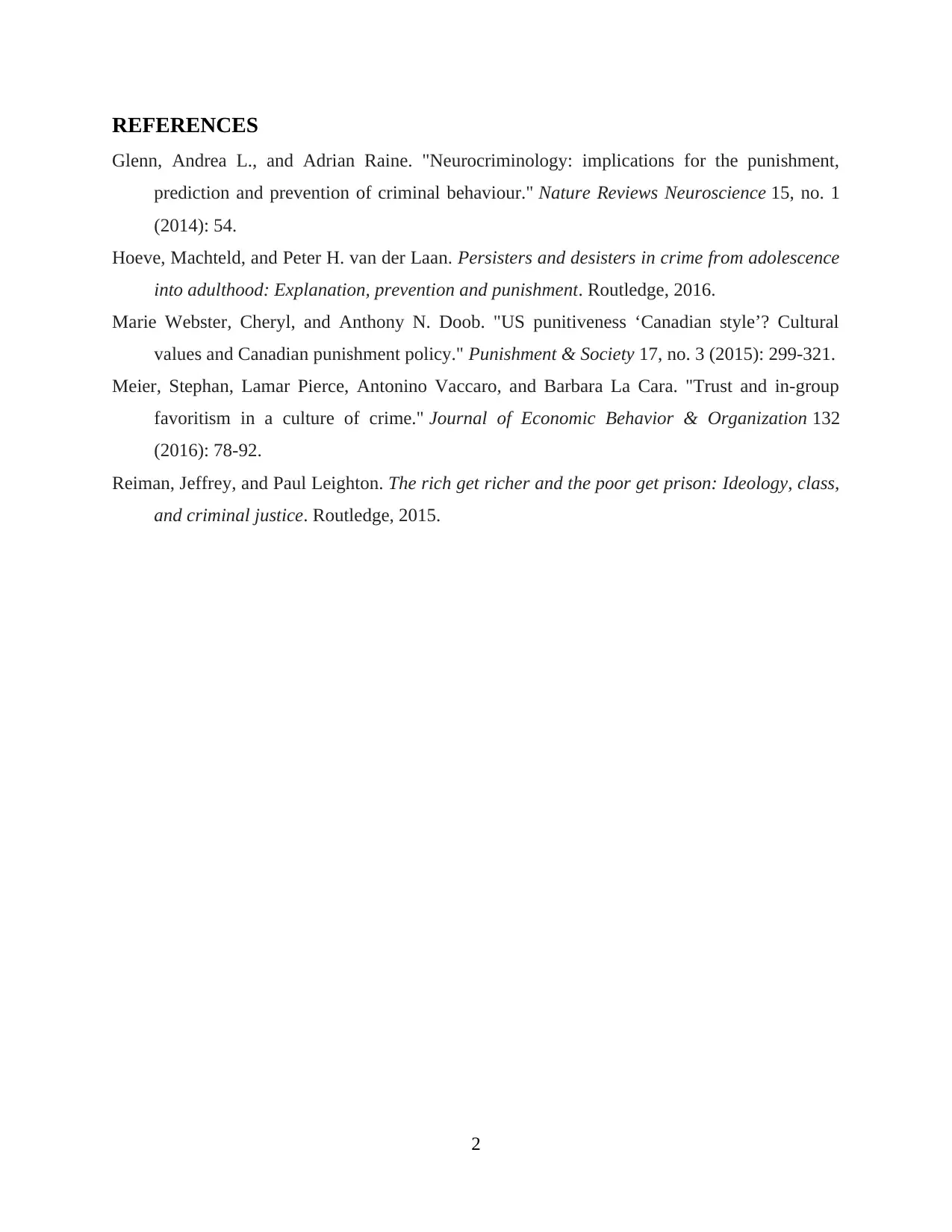An Analysis of Crime, Punishment, and Deterrence Strategies
VerifiedAdded on 2020/06/04
|4
|570
|79
Essay
AI Summary
This essay explores the effectiveness of punishment in preventing crime. It begins by examining the viewpoints of deterrence, retributivism, and incapacitation as key components of the criminal justice system. The essay discusses how these concepts aim to prevent crime, addressing the debate on whether increased punishments are the most effective approach. It analyzes the practical implications of punishment, referencing studies and research to support its arguments. The essay concludes that while punishment plays a role, alternative approaches such as reforming delinquents and educating the public are crucial for creating a better society and reducing crime. The essay references several academic sources to support its analysis, including works on neurocriminology, crime persistence, and cultural values in punishment policy.
1 out of 4





![[object Object]](/_next/static/media/star-bottom.7253800d.svg)